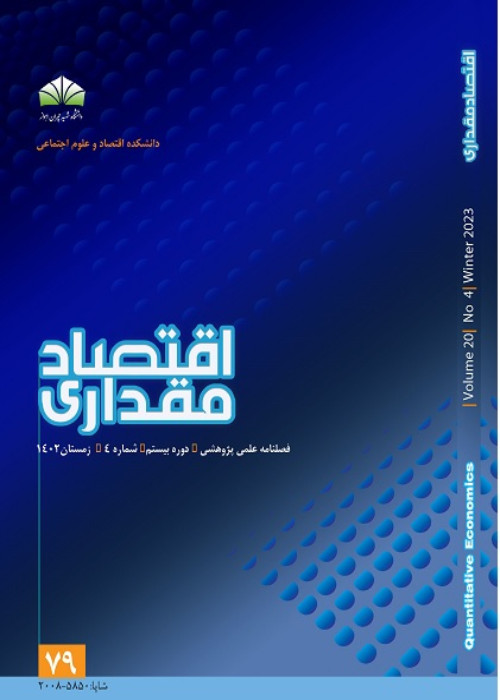Spatial analysis of the effect of terrorism on attracting foreign direct investment in the middle east
The Middle East is one of the regions with a wide range of ethnic and religious diversity. The high share of energy supply has also led to the concentration of regional and supra-regional powers in the region. In recent years, a large share of terrorist attacks has taken place in the Middle East, which in addition to human losses, has had a major negative impact on investment, tourism and economic growth in the Middle East. Therefore, identifying the effect of terrorist activities on attracting foreign direct investment of these countries in the economic and security policies of these countries is important and necessary. Foreign investors are often reluctant to be aware of all the risks involved. The risks posed by terrorist incidents are no exception to this principle, especially when the target of terrorist attacks is to intimidate a foreign investor. The risks of terrorism increase the cost of starting a business by spending a lot of money on security and insurance of economic activity, the cost of preventive measures, and the high wages of employees who are at risk. These costs reduce the expected performance of investment activity, and as terrorist risks rise above a certain level, the foreign investor will move its capital to a safer area. Political factors are slightly different from their conditions and function in terms of economic factors. The economic base of countries, especially developing countries, is very vulnerable in the face of unacceptable domestic factors. Political instability, as the main internal factor, has the closest reaction to the content of economic security in terms of effectiveness on factors of production. In developing countries, uncertainties that arise in the face of political instability and the perpetration of violent norms (such as terrorist attacks) lead to declining investment, the country's inability to successfully attract foreign investment, and capital flight. د گردد. The manifestation of terrorism is one of the indicators of political instability that is considered as one of the serious problems of the international community, especially in developing countries, and its consequences are broad on the development of global economic and political ties.
The purpose of this study is to investigate the relationship between terrorism and the inflow of foreign direct investment in the Middle East using spatial econometrics during the period 2008-2019 using the space autocorrelation model (SAC). Statistics and information required for the three variables of foreign direct investment, inflation rate and degree of trade openness from the World Bank website and for the variable of terrorism, from the global database of terrorism and for the index of political instability, property rights and democracy from The ICRG site affiliated with PRS GROUP has been extracted for the period 2008-2019 in 15 Middle Eastern countries.
First, to investigate the spatial dependence of Moran and Jerry C tests, the spatial dependence of countries was confirmed and based on the significance of Moran test, the research model was estimated in the framework of spatial autocorrelation. According to the research results, terrorist activities show negative and destructive effects on attracting foreign direct investment in these areas and this result is consistent with the results of other studies such as Panahi (2013) and Salmani (Salmani, 2014) is. According to the research results, the variables of degree of trade openness and democracy have a positive and significant effect on attracting foreign direct investment in the study areas, while the variables of political instability, property rights and inflation have an impact. Negative and significant on attracting foreign direct investment in the study areas, among which the number of terrorist attacks has the most negative impact on attracting foreign direct investment, as well as property rights index, political instability, degree of trade openness. , Democracy and inflation rate have the greatest impact on the economic growth of these countries, respectively.
Foreign direct investment is one of the main components of economic development and its flow has great effects on a country's economy. In other words, terrorist activities reduce the security and confidence of investors in countries exposed to terrorist activities and reduce the flow of foreign direct investment. On the other hand, the anti-terrorist security costs imposed on the economy reduce the economic potential. The economic effects of international terrorism can be analyzed in the short and long term. In the short run, terrorism leads to financial losses, losses and the creation of an insecure investment environment, and in the long run, international terrorism diverts capital resources by increasing national security spending and counter-terrorism activities. The transition to these costs and tax increases. To explain why spatial regression is used in this study, it can be added that the variable of terrorist activities in area j will not be affected only by internal factors in that area. When the number of terrorist activities in the neighboring country increases, it has a negative effect on attracting foreign direct investment to neighboring countries (spillover effects) and also if the terrorist activities are effective in region j, it indicates the phenomenon of spatial dependence that conventional econometrics is possible. Does not estimate and identify these effects and factors.
- حق عضویت دریافتی صرف حمایت از نشریات عضو و نگهداری، تکمیل و توسعه مگیران میشود.
- پرداخت حق اشتراک و دانلود مقالات اجازه بازنشر آن در سایر رسانههای چاپی و دیجیتال را به کاربر نمیدهد.


